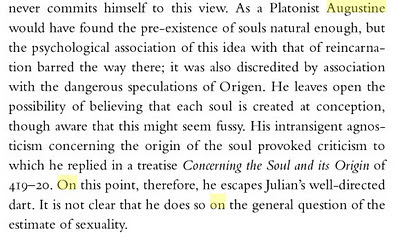I mentioned before that I had picked up a copy of Philosophy Now for some holiday reading, mainly because Ï felt I just had to reward whoever it was that came up with the cover featuring this: "Kant & Co. Kant, Hegel, Nietzsche, Schopenhauer - Four Dudes that Shook the World".
As it turns out, I didn't find the story on Kant all that good, although it did point out that the famous problem of what his system of morality means for lying (he thought you shouldn't even lie to an axe murderer who arrives at your door looking for your occupant) is about a conflict of values, and Kant didn't talk about this at all.
The relevant section from the article is this:
Staying with the axe murderer, it should be plain that more than one imperative/moral principle is relevant to the situation. Certainly we should tell the truth; but do we not also have an obligation to fight evil? We are confronted with a conflict of values here. Unfortunately, as far as I know, there is no explicit discussion of this issue in Kant. One could assume, however, that his general approach of distinguishing the lesser from the greater evil should be applied. I think Kant might say that although lying is never right, it might be the lesser evil in some cases.
What the writer (Prof Peter Rickman, a former head of philosophy at City University in London) is that the murderer example came up during Kant's life and he did try to address in an essay. If this summary
from Wikipedia is any guide, Rickman's optimism about Kant coming up with a "lesser of two evils"resolution seems ill placed:
This challenge occurred while Kant was still alive, and his response was the essay On a Supposed Right to Tell Lies from Benevolent Motives (sometimes translated On a Supposed Right to Lie because of Philanthropic Concerns).
In this reply, Kant agreed with Constant's inference, that from Kant's
premises one must infer a moral duty not to lie to a murderer.
Kant denied that such an inference indicates any weakness in his
premises: not lying to the murderer is required because moral actions do
not derive their worth from the expected consequences. He claimed that
because lying to the murderer would treat him as a mere means to another
end, the lie denies the rationality of another person, and therefore
denies the possibility of there being free rational action at all. This
lie results in a contradiction in conceivability and therefore the lie
is in conflict with duty.
I also note that in what can be argued is a sign that philosophy is either:
a. a lively, relevant and engaging activity relevant to the modern world; or
b. stuck in endless and unproductive repetition and should be replaced with more drinking
you can Google the topic "Kant and conflict of categorical imperatives" and get 225,000 links, including
to this one, from a discussion in 2011 which is pretty good.
The modern issue of lying to the axe murderer at the door is usually reformulated to the more historically relevant "what should good Europeans have done if they were hiding Jews in their house and a Nazi came to the door asking awkward questions".
The "best" answer to the question in that last link notes that strict Kantian thought would deny there really was a conflict; the lying can never be justified. It also points out that Kant would argue that the truthful house owner would not be morally responsible for the deaths of the Jews, which is technically true but no doubt hardly a source of comfort to most people.
But the other interesting point is that Neo Kantians have another way out of the specifically Nazi based example:
It's also worth considering that a neo-Kantian would take issue with your example on technical level, arguing that it's not a good example because the Holocaust is an exceptional situation, a special case, if you will.
More specifically, the German state at the time formed an illegitimate government, and the SS officers were acting as agents of this illegitimate government, this state that is on face unjust. Given such case, one could argue, his entire corpus of ethics does not apply, as it was only intended to apply to situations involving a just government. (For more on this, see Kant's "Doctrine of Right" and Metaphysics of Morals 6:264, etc.)
That's not helpful if a real revenge seeking violent person comes to your door looking for your relative, however.
The last link also provides a link to a philosophy journal discussion of the issue from Nov 2010, which looks interesting indeed, but is behind a paywall. Here's what we can see, from the part of the abstract that is available:
Sorry about the fuzzy quality of the image: I did my best.
The author of the article is
Helga Varden, an assistant professor of philosophy at the University of Illinois, and her list of work indicates she's quite the Kant fan. I see she has one paper entitled "A Kantian Conception of Rightful Sexual Relations," which sounds like a blast from a man who thought masturbation was more degrading than committing suicide.
Anyhow, it's interesting to note how Kantian philosophy continues to intrigue and be debated after all these years. The motivation, I suppose, comes down to wanting to ground morality and ethics on something rational other than utilitarianism, which has its own distinct problems (which, incidentally, get discussed in an article in the same issue of Philosophy Now about the "trolley problem".)
Back to normal programming soon...
















